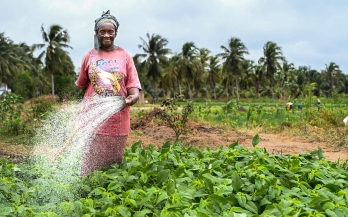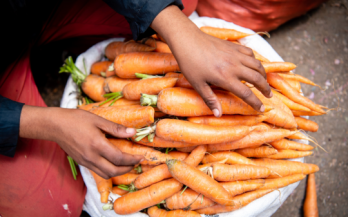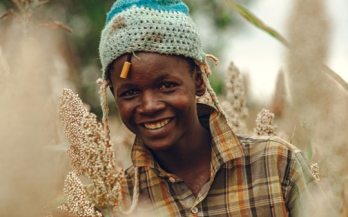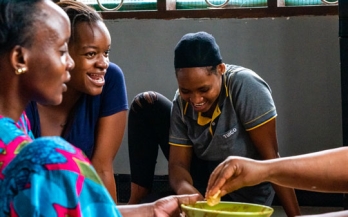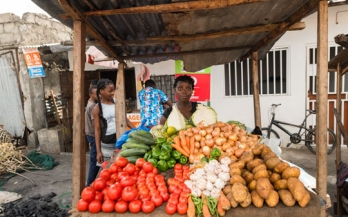From March 27 to 28, 2025, The Government of France hosted the 2025 Nutrition for Growth (N4G) Summit in Paris. The N4G Summit is an international conference dedicated to defeating all forms of malnutrition by bringing together governments, international organisations, philanthropies, businesses, NGOs and other key stakeholders. Its objectives are to elevate nutrition as a key priority on the global development agenda and secure concrete political and financial commitments to accelerate progress against malnutrition.
In alignment with its mission to enhance nutrition outcomes by improving the consumption of nutritious and safe food for all people, GAIN registered two new commitments under the Nutrition Accountability Framework (NAF) to ensure accountability in achieving its objectives. These commitments build upon those that GAIN initially registered at the 2021 Tokyo N4G Summit.
The two-way relationship between food systems and climate creates opportunities for action contributing to climate mitigation, adaptation, resilience, and human health co-benefits, alongside a range of positive socioeconomic outcomes, making food systems transformation for nutrition and climate a key strategy to accelerate progress towards the Sustainable Development Goals (SDGs) and the Paris Agreement.
At the 77th World Health Assembly in Geneva, Global Alliance for Improved Nutrition (GAIN) voiced its support for the WHO Global Strategy for Food Safety and reducing the risks in traditional markets.
As thousands congregate in Iowa for the 2023 Borlaug Dialogue to search for ways to end global hunger and celebrate this year’s World Food Prize Laureate, his words ring truer than ever.
50 organisations representing the global nutrition and child health communities are calling on the executive board of the WHO to support the resolution "Accelerating efforts for preventing micronutrient deficiencies, spina bifida and other neural tube defects through safe and effective food fortification."
COP27 was not the first time nutrition and climate have been mentioned in the same breath at a COP. That was in Paris in 2015 and no one really listened. Timing is everything and in Sharm El Sheik seven years later the timing was right.
Healthy and sustainable food must be made more accessible, available, and affordable for all by governments and the private sector. Additionally, COP27 must address a comprehensive food systems transformation, including a focus on healthy and sustainable diets.
G7 Development Minister’s communique and the Chair’s Summary – Session 5: "Response to Multiple Crises on the African Continent – focusing on Food Security". The Zero Hunger Coalition and Private Sector Pledge have received strong support from the Communiqué 'Achieving the Sustainable Development Goals in times of multiple crises' issued on 19 May 2022 by the G7 Development Ministers.
Today GAIN presents its statement on food safety to the 75th World Health Assembly taking place in Geneva. GAIN aims to make nutritious safe foods more desirable, available, and affordable for all. The new WHO global strategy for food safety launched today is an important milestone in linking the objectives of food safety, nutrition, and smart development, for if food isn’t safe, it isn’t food.


